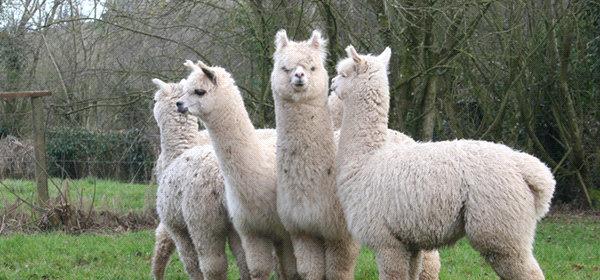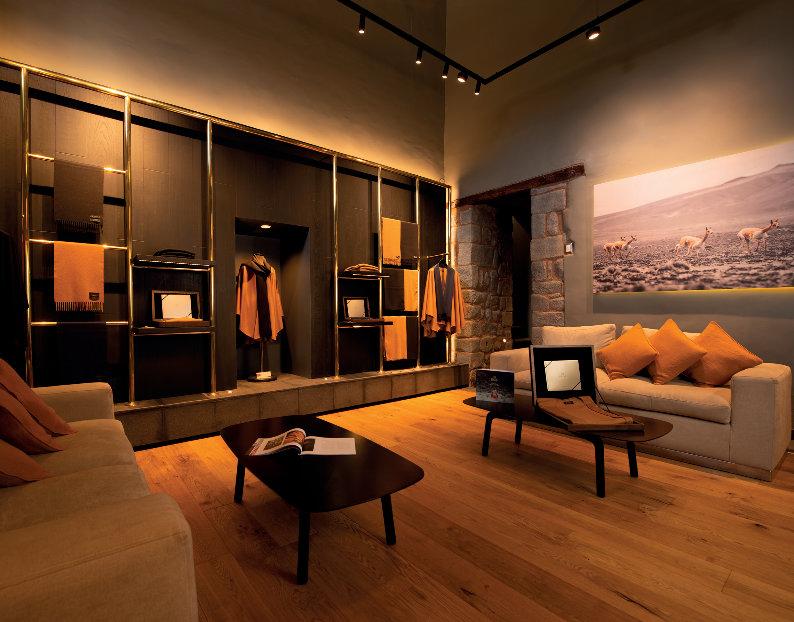
7 minute read
From Behind Bars To Bar Codes
From Behind Bars
to Bar Codes! Fashions unlikely origins
Advertisement
Edited by Esme Graham
Is it possible to build a profitable fashion business behind bars?
Carcel is a Danish clothing company with a vision to accelerate and inspire the worlds transi�on to a desirable, sustainable fashion industry. Their mission is to create a global desirable fashion alterna�ve that eradicates poverty for women in prison and protects our planet through aspira�on, design and technology.
How did it all start?
Founder, Veronica D’Souza, came up with the idea a�er visi�ng a women’s prison in Nairobi. The women told her that the main reason for their imprisonment was poverty. Most of them were there for commi�ng non-violent crimes because they wanted to provide for their children. At the same �me, they were making small cra�s like kni�ng sweaters and teddy-bears. Without access to good materials, skills-training or a market on the outside, they didn’t get to sell their products. When they le� prison they were further marginalized and impoverished and many of their children had been le� to grow up without a provider, con�nuing the poverty cycle.
Veronica started researching and discovered that this is the case for women in prison all over the world. Very few organisa�ons talk about this issue, and there is generally very li�le awareness around this topic. Veronica decided to create a company that would construc�vely put to use the �me spent in prison, rendering it as an opportunity to gain new skills and fair wages so that incarcerated women could provide for themselves, for their families and save up for when they were released. Veronica paired up with designer Louise Van Hauen, and together they started the first produc�on facility inside the women’s prison in Cusco, Peru.
How we work in prisons
Se�ng up our own produc�on facili�es within prisons and managing these ourselves enables us to make sure that the labour rights and wages are matched to best prac�ces within produc�on sites outside of prisons. We have appointed our own produc�on managers in our two produc�on facili�es, in Cusco, Peru, and Chiang Mai, Thailand. They are on site every day, managing everything from recruitment, training, working hours and payment to ensure that our standards are maintained and developed. Our Copenhagen based team also visits on a regular basis. We see our work spaces in Thailand and Peru as an extension of our company in Denmark, and we treat everyone as our employees.
Most of the design process takes place together with our teams inside the prison. It’s important to us that everyone learns all the different techniques from s�tching to pa�ern making. Our teams are excep�onally talented and commi�ed and func�on more and more as the design development studio.
We also have courses in other areas of exper�se in order to develop new skills that are useful for life a�er prison. So far, we have carried out courses in entrepreneurship, financial literacy, English, jewellery making and business plan development.

In Peru, we have created the NGO ‘Associa�on Made in Prison Peru’ in which every woman is employed. The day to day responsibility lies with our produc�on manager Surya Miranda. She is on site every day with our team and carries out training and development, ensures quality control and manages payments.
We currently have 15 women on our team, some of whom have been working with us for more than two years. The working hours are 5 hours per day, five days per week. As there is no internet or cell phones in prison, we communicate through Surya, who oversees the dialog between our produc�on team and our headquarters on a daily basis.
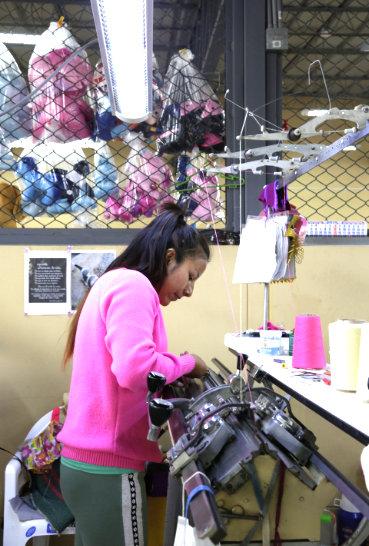
Chiang Mai Women’s correc�onal Ins�tu�on, Thailand.
In Thailand, we have a partnership with the Ministry of Jus�ce, The Department of Correc�ons, Chiang Mai Women’s Correc�onal Ins�tu�on and the NGO ‘Kamlanjai Project’ under HRH Princess Bajraki�yabha Mahidol, who is UNODC Goodwill ambassador for South East Asia.
This partnership allows us to pioneer a new model for employment inside of the prison.
What we mean by fair wages
What do we mean by fair wage?
We adhere to the recommenda�on by the Interna�onal Labour Organisa�on (ILO) that everyone should make a living wage, which is the amount of income that is needed to cover the cost of living in a given country. No ma�er where you are situated geographically or what it is that you do, you should be en�tled to a wage that enables you to have a decent standard of living.
A fair wage is determined by country, to reflect local market condi�ons and regula�ons. We benchmark against similar jobs on the market, look at recommenda�ons by trusted organisa�ons and speak with our employees about it.
Defining a living wage is complicated, as the methodology is based on the actual cost of living for a single person or a family in a given geographical area. This varies widely whether you live in the countryside or the city, and depending on the size of the family or co-dependencies you have.
The costs of living in a prison are different than on the outside. However, most of our employees have families to provide for and we therefore benchmark with a living wage that covers the support of families outside of prison. We monitor the local condi�ons and should any general changes be applied to the labour markets within the countries in which we operate, we are ready to adjust our employees’ wages accordingly.
At Carcel, we engage with our employees directly to get their feedback, as well as with interna�onal experts from organisa�ons such as the ILO and the UN in order to ensure that we comply and go beyond The Conven�on Against Forced Labour and The United Na�ons Standard Minimum Rules for the Treatment of Prisoners.
Transparency
The en�re fashion industry needs transparency. We need to talk much more about who makes our clothes, how wages are set, what the costs are and what the profits are spent on.
We are a social business because we believe in improving lives for women in prison through a sustainable business model. Everything we make we invest back into the company. We make sure that our employees get fair wages, and invest in the produc�on equipment and machinery, training, high quality materials, and natural materials in �meless designs that last.
We build our prices from the bo�om up. This means that we start with the cost of a fair wage, then we add the cost of quality materials, and all other costs related to that product. That is our true cost.
Materials; is the costs of the yarn, fabric, thread, dying and print from our regional suppliers.
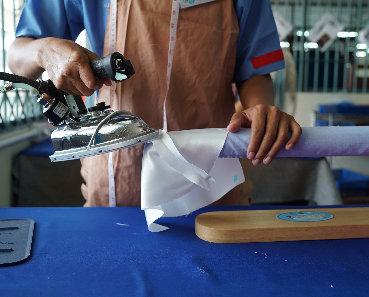
Labour; is the salary of the working hours from the beginning to the end of a product.
Opera�ons; is maintenance of our machinery, quality check, local documents and labour of our produc�on manager.
Bio packing; is hangtags, neck- and care label and biodegradable packing.
Freight; is CO2 compensated freight from Peru and Thailand to Denmark.
Our mark-up


We sell both through selected stores and online. This means that both our mark-up and our cost vary depending on the sales channel. It is however important, that the price of a product costs the same no ma�er whether you find it in a store or online. And to us, it is important that it never goes on sale and never loses its value, no ma�er what month it is.
*When we are selling online, the costs are higher due to online payment fees, packaging and shipping to customer. Cu�ng out retail, our mark-up is higher. Working within the prison system is complex, but we believe that crea�ng new and fair standards for work as rehabilita�on can have a tremendous impact for incarcerated women.
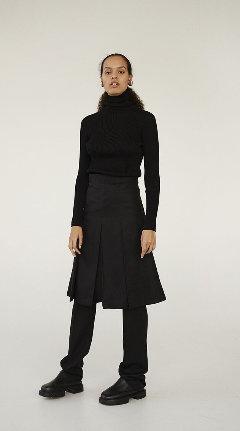

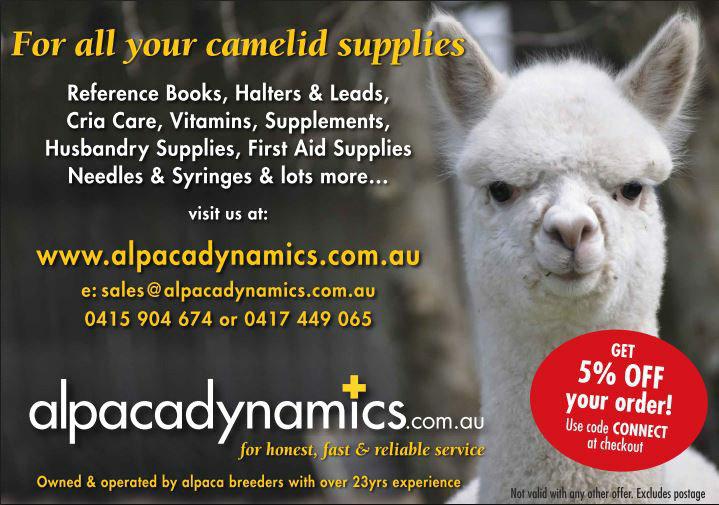
AAFT
Australian AAFT has a new home! Janet Bell has taken over from Paul Vallely.
Janet Bell | PH: 0437421640 The new address is 124 O’Neills Road, Gowrie Park. Tasmania 7306
EMAIL: janet@aa�.com.au
www.aa�.com.au





